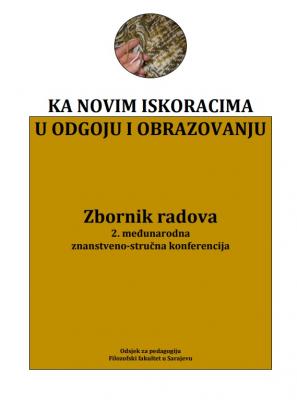NADOLAZEĆA ODRASLOST“ KROZ PRIZMU ODNOSA UNUTAR EDUKOLOŠKOG SISTEMA
„EMERGING ADULTHOOD“ FROM THE PERSPECTIVE OF EDUCOLOGICAL SYSTEM
Author(s): Amina Isanović HadžiomerovićSubject(s): Adult Education, Developmental Psychology, Sociology of Culture, Sociology of Education, Pedagogy
Published by: Filozofski fakultet Univerziteta u Sarajevu
Keywords: Educology; Andragogy; Pedagogy; ʻEmerging Adulthood’; life-span perspective;
Summary/Abstract: Educology, by virtue of its integrativity, shows special sensibility towards human as a unique system and his/her development as a unique process throughout the lifespan. Therefore, in its approach to human development, Educology gathers knowledge of all disciplines related to it whether directly or indirectly. Certainly, central position belongs to Pedagogy and Andragogy, as educological disciplines of the first order. While the domain of pedagogical activity is rather traditionally well-established, the domain of andragogical approach is defined differently in respect to a variety of socio-cultural and developmental-psychological variables. Among the phenomena which face educological system and relationships between its elements with the need of constant questioning is the phenomenon of adulthood. In postmodern world, marked by contingency, nonlinearity and plurality, adulthood seems to be quite polysemic and stratified notion. Introducing into the discourse the concept of emerging adulthood, this paper attempts to question borders and relationships inside educological system, primarily between Pedagogy and Andragogy. Emerging adulthood is a concept introduced in the early 21st century by American theorist Jeffrey Arnett to mark the period in human life after adolescence and before adulthood. Analysing this concept from the perspective of Educology, this paper aims to grasp the borders and possibilities of pedagogical and andragogical approaches, questioning the very nature of their intrigue relationships. Results indicate that there is a need for larger interconnectedness and inclusion of these two elements of educological system than it is accustomed practice.
Journal: Zbornik radova Odsjeka za pedagogiju
- Issue Year: 2/2018
- Issue No: 2
- Page Range: 502-512
- Page Count: 11
- Language: Bosnian

